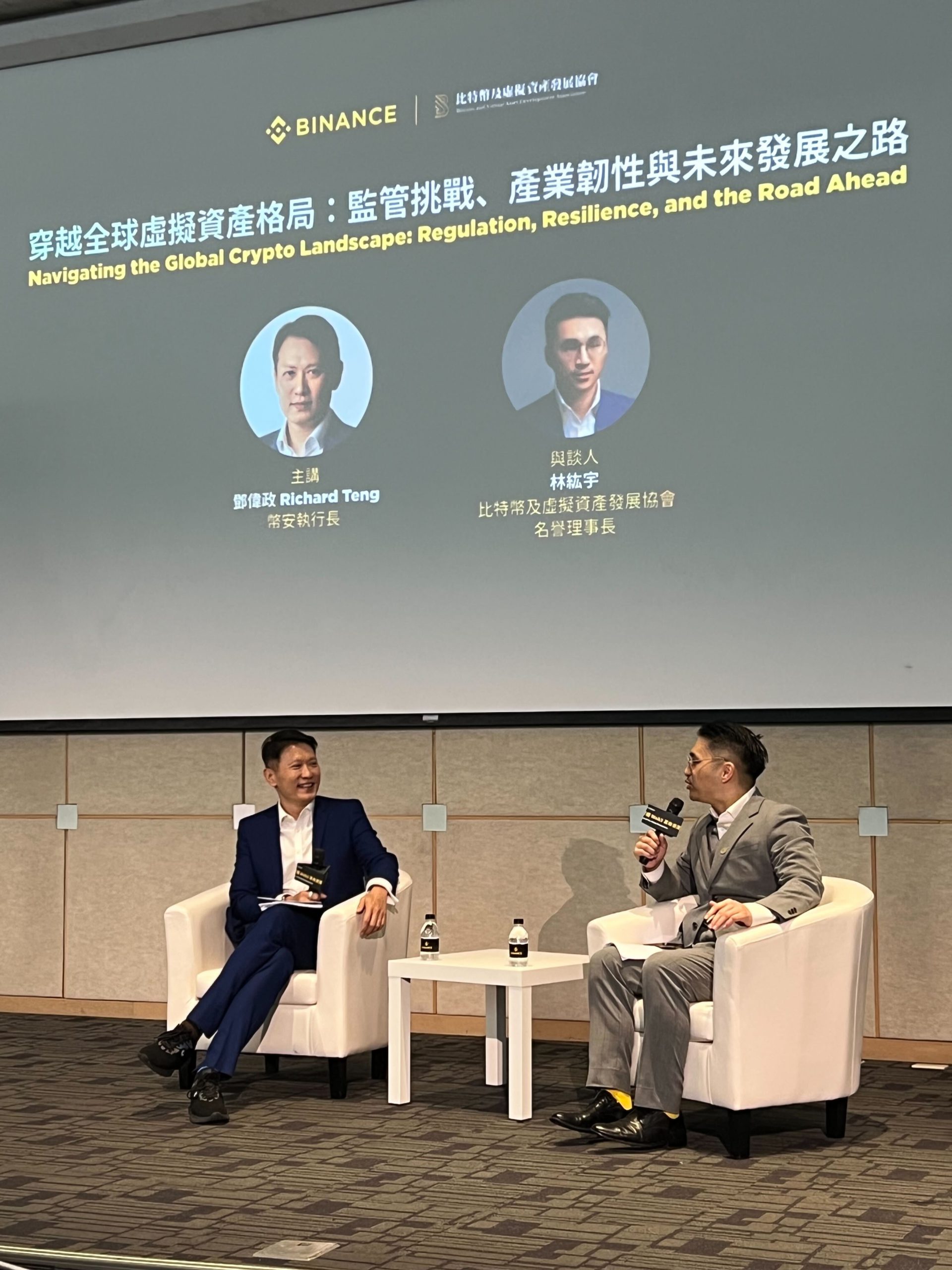The "Taiwan Connecting with the World: Grasping the Web3 Revolution" summit kicked off today (9th) in Taipei. Richard Teng, CEO of the world's largest crypto exchange Binance, was invited to deliver a keynote speech, outlining the latest dynamics of crypto assets from policy reversal to market implementation through the dual perspectives of a former regulator and industry leader.

US Policy Shift and Institutional Fund Inflow
Richard Teng first highlighted the impact of the US "National Crypto Strategic Reserve" and new positioning of stablecoins. The Trump administration listed blockchain and AI as economic pillars, with Congress quickly passing the Gunius Act and Clarity Act, ending the uncertain enforcement during the Biden era.
During the Biden administration, the government explored crypto through regulatory enforcement, which is the worst approach for a new field, wasting the most time and resources.
Richard noted that after clear regulation, the world's first Bitcoin spot ETF was approved in the US, followed by Hong Kong and Canada, marking the official entry of institutional funds.
2024 is a crucial year as it represents the mainstreaming of cryptocurrencies.
He exemplified that 200-300 top international financial institutions have established crypto strategies; the UAE sovereign fund MGX's $2 billion investment in Binance further highlights global capital momentum.
Richard reminded the audience that currently only 7% of people invest in cryptocurrencies, and it is still a "very early" stage. Current institutional investors and trust funds may take longer for due diligence, but family offices and national-level sovereign funds are already positioning in crypto assets.
Binance Experience: Collaborative Smart Regulation
From a regulator in Singapore and Abu Dhabi to a crypto exchange leader, Richard Teng emphasized that "smart regulation" must balance risk control and innovation encouragement. Binance is currently regulated in 22 jurisdictions, and he revealed that the team proactively exchanges frameworks with various countries, seeking transparency. "We are not fighting regulation, but working together to build a healthy market." He mentioned that after recent litigation progress, market confidence has recovered, with daily user volume reaching new highs.
Discussing application scenarios, he focused on Bhutan. This small country develops Bitcoin mining through hydroelectric green energy, holding the third-highest Bitcoin amount globally and incorporating BNB and ETH into national reserves. Richard Teng stated that Binance helped introduce Binance Pay in Bhutan's tourism industry and among locals, enabling direct crypto payments, demonstrating a viable path for financial inclusion.
Taiwan's Web3 Opportunities
Returning to Taiwan, Richard Teng is optimistic about Taiwan's talent advantage in combining AI and blockchain. He mentioned that Taiwan's tech talent holds a significant advantage in both AI and blockchain, and he is eager for Taiwan to leverage this strength, as the first wave of crypto investors are closely tied to technology.
Of course, Taiwan has diverse talents, including financial professionals. Richard hopes to continue collaborating with Taiwan to build a comprehensive and energetic ecosystem, accelerating development.
Binance currently has about 280 million users, and Taiwan's major telecom operators are entering crypto exchanges, potentially significantly increasing user traffic. Richard again reminded future investors:
Be sure to Do Your Own Research (DYOR) before entering the market, thoroughly understanding products and risks.
He stated that Binance Academy will continue to provide free courses to help newcomers build foundational concepts.
Richard Teng shared today that cryptocurrencies are transitioning from startups to mainstream; with global regulatory reshaping and institutional fund support, the Web3 industry enters a new stage. For Taiwan, how to seize talent and policy windows, and learn from Binance's compliance experience, will help establish a foothold in the new digital asset wave.







